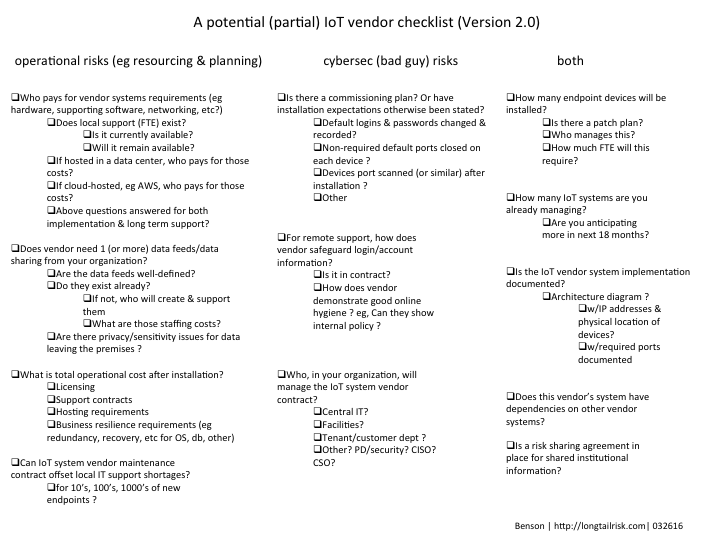In order to maximize the value of an IoT system to an institution or city, how that system is implemented is critical. Without a thoughtful and thorough implementation, the value of the investment will not be met and, possibly, the value can even be negative through the addition of unmitigated risk to the institution or city.
I’ve updated the IoT systems planning considerations list from an earlier post and created a more checklist-like document to use when working with IoT systems vendors. Earlier versions appeared in posts Institutional considerations for managing risk around IoT, Developing an IoT vendor strategy, and Systems in the seam – shortcomings in IoT systems implementation. Ideally, this document could be used during the contract development and negotiation phases with the vendor.
The intent of the document is to help compute the Total Cost of Ownership for an IoT systems implementation as well as raise expectations of the vendor for a delivered system. In doing so, we can help mitigate some operational risk (suboptimal business decisions) as well as cybersecurity-related risk (bad guys wanting to use our assets in a malicious manner).
I’ve created rough categorizes of issues falling under operational risk, cybersecurity risk, and those falling in both categories to help provide some additional structure. However, many issues influence each other so it’s not critical to get tied up in the categorization.

A starting point for an IoT systems vendor checklist
pdf version here
